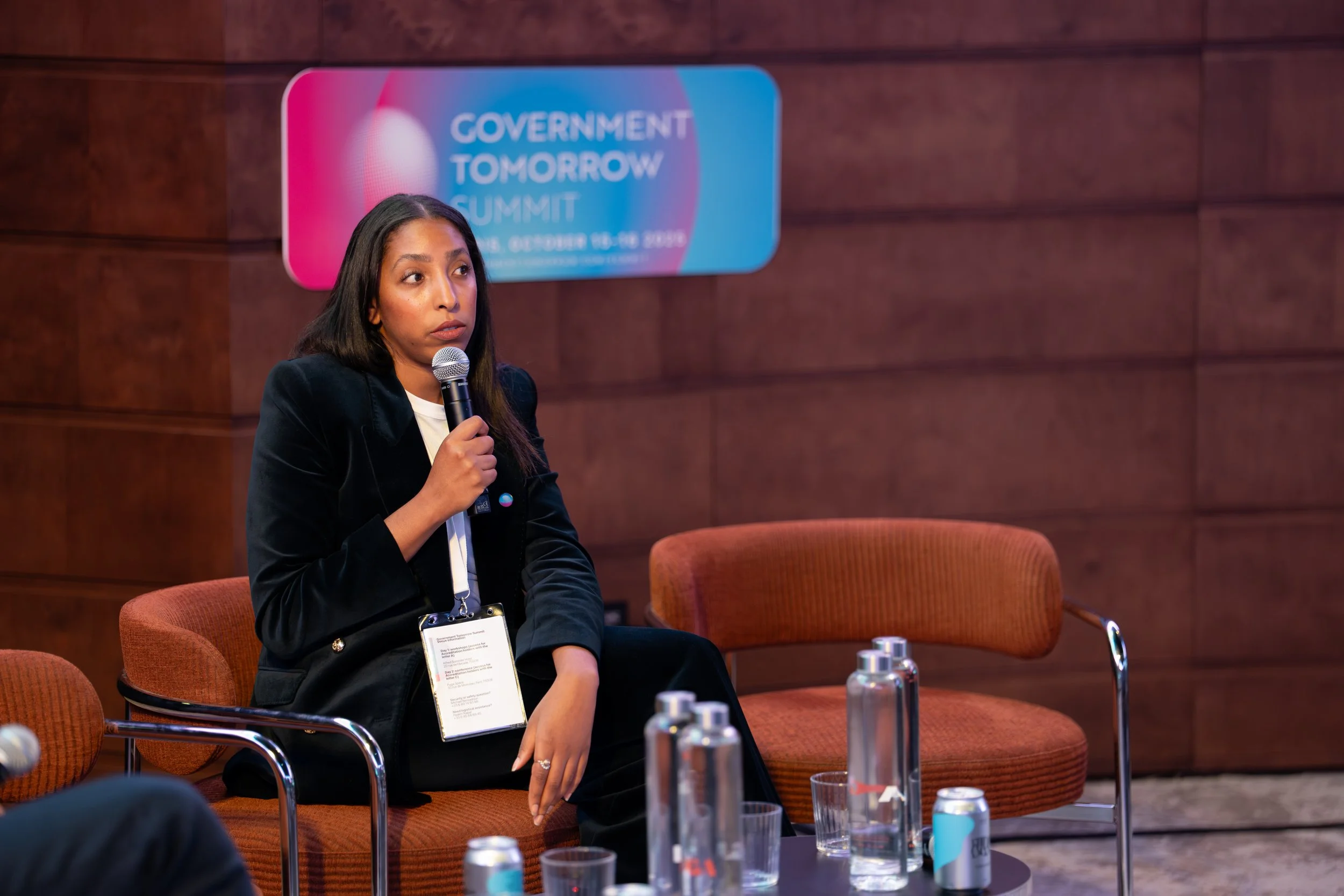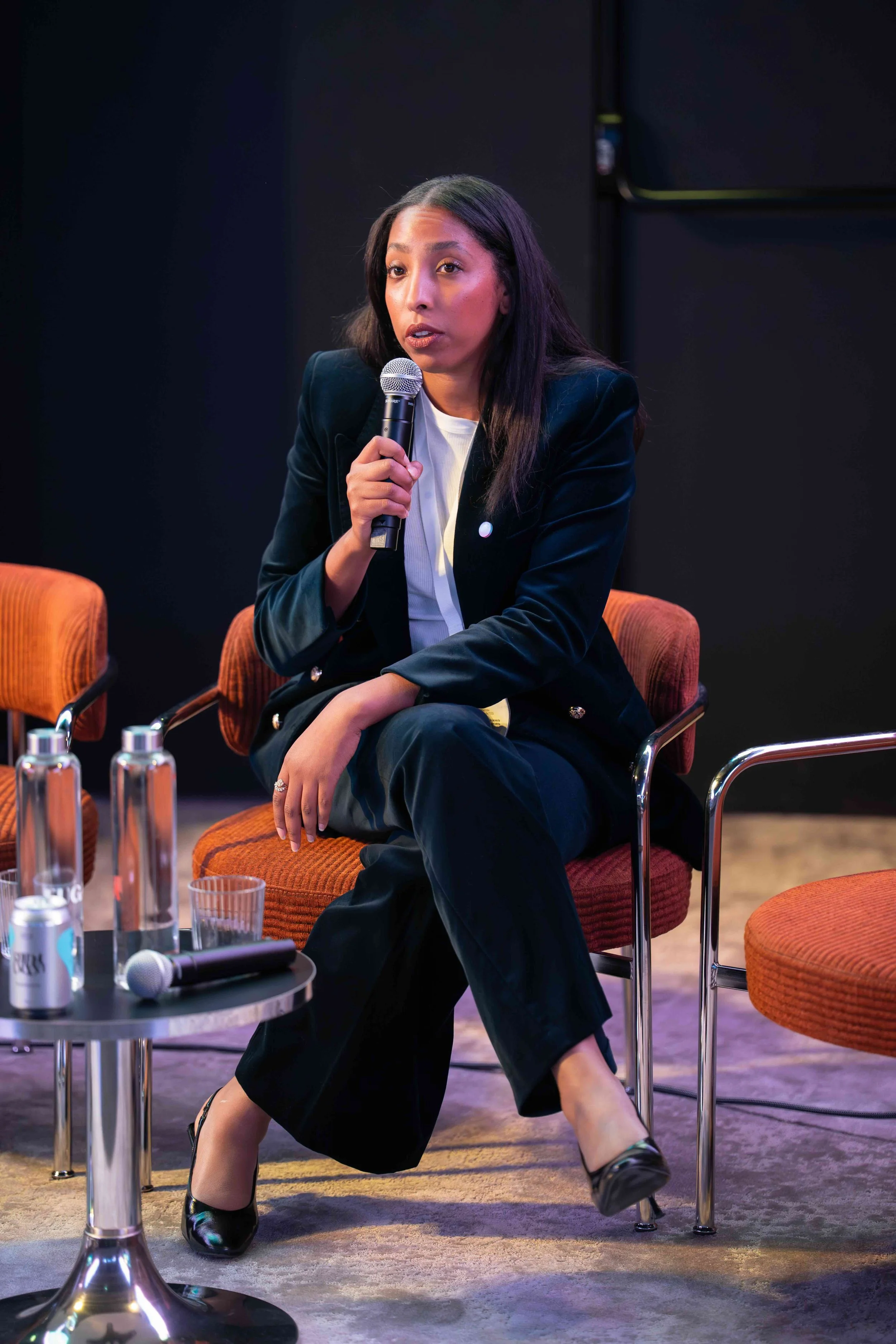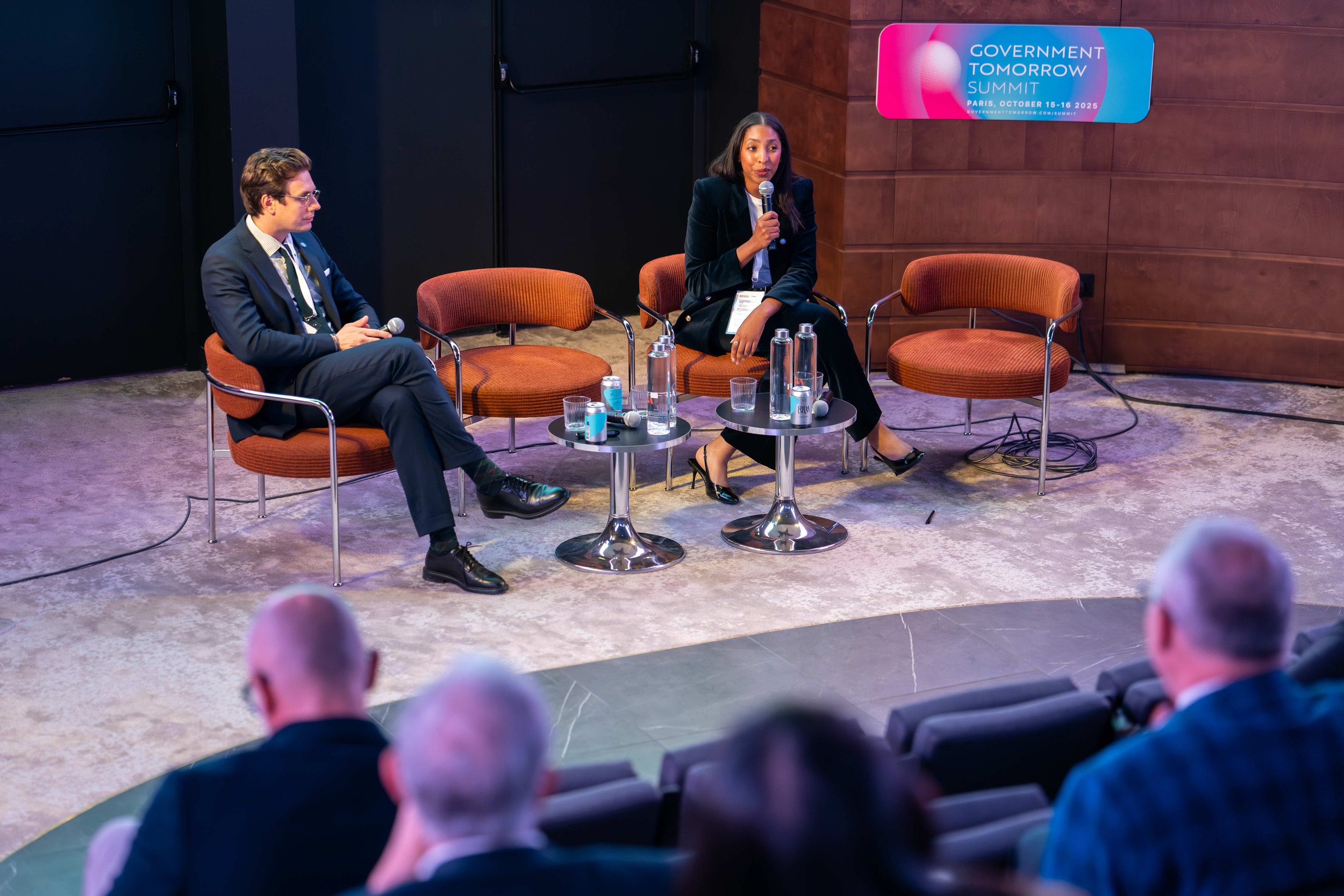Fadila Leturcq, Head of the Public Digital Campus of the French Government: ‘‘The leadership of tomorrow will not rely on heroes, but on architects of collective intelligence.’’
In this interview for the #1 of Government Tomorrow Review (published January 2026), the head of the Digital Campus of the French Government Fadila Leturcq explains the ambition and the essential methodology behind this important education project for public servants.
Government Tomorrow Forum: How can you describe what the Digital Campus does and what is the origin of the project?
Fadila Leturcq: The Public Digital Campus is the French government’s hub for digital and AI skills development. We bring together, in one single place, the entire ecosystem of training offers for public servants: from decision-makers to doers, from digital professionals to complete beginners.
Our mission is simple but ambitious: to make digital skills a pillar of sovereignty by empowering every civil servant to understand, design and govern technology responsibly.
The project was born from a simple observation: the digital transformation of public services was moving faster than our collective ability to adapt.
“Our mission is simple but ambitious: to make digital skills a pillar of sovereignty by empowering every civil servant to understand, design and govern technology responsibly.”
We realised that we had digitalised our tools, but not yet our cultures, and that the women and men who make the State were not sufficiently equipped to face this transformation confidently.
So we created the Campus in January 2024, to give them the means to learn, experiment, and grow.
GTF: Did you, and do you benchmark against similar projects in other countries?
FL: We constantly look for inspiration from international initiatives that share the same human-centred vision of digital government.
Several countries are already very advanced in developing digital literacy among public servants, notably the United Kingdom, Canada, and Australia.
But we don’t only benchmark: we also collaborate. Governments around the world face similar challenges when it comes to reducing bureaucracy, driving transformation, and leading the digital transition. That’s why we choose to share our challenges and pool our solutions.
We regularly exchange with francophone countries such as Canada, Belgium, Luxembourg, and several African nations. These partnerships allow us to co-create and share digital training content in French, and to avoid reinventing what others have already done successfully.
We also work closely with UNESCO, the OECD, the European Commission, and national schools of public administration to build a shared language around AI literacy and ethical digital governance.
Recently, for example, we contributed with other schools of public administrations from different countries, to the creation of a new educational commons led by UNESCO and the University of Oxford - Saïd Business School: an online course entitled “AI and Digital Transformation in Government.”. It has been translated into several languages and includes country-specific use cases, allowing each government to contextualise AI and digital transformation within its own administrative and cultural framework.
More than benchmarking, international collaboration on digital literacy is becoming essential: it is how we build a common foundation for responsible, human-centred digital governance worldwide.
GTF: What are some of the successful projects that the Campus has completed since its creation that really impacted the way public servants work?
FL: Since its launch in 2024, the Campus has trained over 100,000 civil servants across ministries, local authorities, and public agencies. A few flagship initiatives stand out:
“Discovering Generative AI”, a course co-designed with INRIA Academy, helps public servants understand and responsibly use generative AI. Launched only five months ago, it has already gathered tens of thousands of learners.
The Digital Leadership Programme for the Top 200 of the State, a year-long mandatory training plan for senior public executives. It combines high-level exchanges with digital leaders, learning expeditions, and masterclasses to foster strategic understanding of digital transformation.
The “Booster Agile” programme, created from the insight that teaching agile project management was not enough: we needed to make management itself agile. The training therefore focuses as much on soft skills as on technical ones. Two cohorts have already been launched since April, training 250 public servants, with a target of 1,000 by 2026.
“In the age of AI, leadership is less about control and more about stewardship : guiding ecosystems, not hierarchies.”
The “Digital Strategy Advisor” training track, designed to develop strategic advisory skills among internal experts, helping administrations to reinternalise capabilities often outsourced to private consulting firms.
A series of short awareness videos on design, user research, and accessibility, created to promote basic principles and legal obligations in a simple and engaging way, accessible to all civil servants.
All these initiatives share one common goal: to make digital transformation tangible and human, encouraging public servants to act, experiment, and learn by doing.
TF: What is the «secret sauce» of the Campus and why is it so successful within the French government?
FL: If I had to name our secret sauce, I’d say it’s a mix of human centricity, collaboration, and empowerment.
Human centricity: we put people back at the heart of transformation. It’s not about deploying more AI in public services, but about having more public servants capable of understanding and governing AI.
Collaboration: we bring together ministries, public schools, and local governments under a single learning framework, fostering shared understanding and mutual support.
Empowerment: we believe that competence restores the power to act. In today’s complex world, digital competence is not optional: it’s essential for enabling public servants and public institutions to face complexity with confidence and agility.
We believe that competence is sovereignty and that every agent, regardless of grade or position, has a role to play in the digital transformation of the State.
That’s why the Campus feels inclusive, empowering, and deeply aligned with public service values.
TF: What is your general idea about the leadership of tomorrow? What is the role of public servants in building those leadership capabilities?
FL: The leadership of tomorrow will not rely on heroes but on architects of collective intelligence.
Public leaders must cultivate:
Radical listening, to understand the real needs of citizens and agents;
Digital curiosity, to test, learn, and sometimes fail;
Distributed trust, to let teams decide closer to the field.
In the age of AI, leadership is less about control and more about stewardship: guiding ecosystems, not hierarchies.
Public servants have a key role in this: they are the custodians of democratic values in a digital world.
TF: What are your plans for the upcoming months, and years?
FL: We’re expanding our AI and data literacy programmes, building new learning pathways tailored to specific professions: HR, finance, legal, territorial, technical; and strengthening our partnerships with European and international institutions.
We also invest in strengthening the resilience of public leaders in the digital age. With the rise of cyber crises, information manipulation, and the AI revolution, leaders will increasingly need to develop soft skills (such as emotional intelligence, adaptability, and critical thinking) to navigate uncertainty and lead with clarity and integrity.
Ultimately, our vision is to make learning a continuous, sovereign, and joyful act: so that every public servant feels confident and capable in a rapidly changing world.



